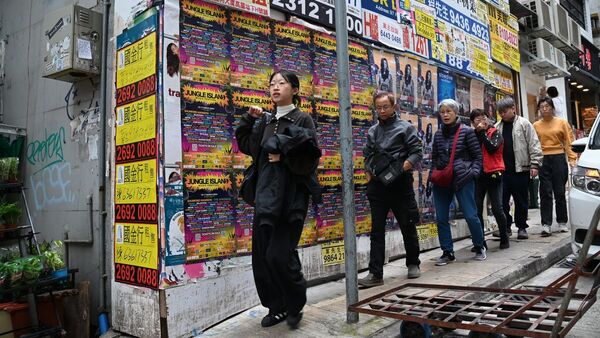In a bold move aimed at mitigating the looming threat of a property slump, Hong Kong has taken drastic action to stabilize its real estate market. Faced with mounting pressures stemming from a combination of economic uncertainties and external factors, authorities have unveiled a series of measures designed to bolster confidence and avert a potentially catastrophic downturn.
Central to the government’s strategy is a multifaceted approach that addresses both supply and demand-side factors impacting the property market. On the supply side, efforts are underway to expedite the development and release of land for residential and commercial projects, aiming to increase the availability of housing and alleviate supply constraints that have contributed to soaring property prices.

SOURCE:- INDIA TODAY
Simultaneously, measures aimed at curbing speculative activities and dampening excessive price volatility are being implemented to restore stability and prevent market distortions. These include stricter lending requirements, higher stamp duties on property transactions, and enhanced regulatory oversight to rein in speculative behavior and prevent asset bubbles from forming.
SOURCE:- WOIN
Furthermore, initiatives aimed at enhancing transparency and promoting affordability are being pursued to foster a more sustainable and inclusive real estate market. This includes measures to improve the availability of information regarding property transactions and pricing trends, as well as targeted interventions to support first-time homebuyers and low-income households.
Beyond domestic measures, Hong Kong is also exploring avenues for international cooperation and collaboration to address systemic risks and vulnerabilities in the global property market. This includes efforts to strengthen regulatory frameworks and promote greater transparency and accountability in cross-border real estate transactions, in order to mitigate the spillover effects of external shocks and ensure the resilience of the local market.
The government’s proactive stance has been met with a cautious optimism among investors and stakeholders, who view these measures as a decisive step towards restoring confidence and stability in the property market. However, challenges remain, and the success of these initiatives hinges on their effective implementation and enforcement, as well as their ability to address underlying structural issues and market imbalances.
Moreover, the long-term sustainability of Hong Kong’s real estate market will depend on its ability to adapt and innovate in response to evolving economic and social dynamics. This includes embracing technological advancements and green initiatives to promote sustainable development and resilience in the face of emerging challenges such as climate change and urbanization.
As Hong Kong charts a course towards a more stable and resilient property market, the stakes are high, and the road ahead is fraught with uncertainties. However, with decisive action and a commitment to reform, the city aims to navigate these challenges and emerge stronger and more resilient in the years to come.
Share your views in the comments

